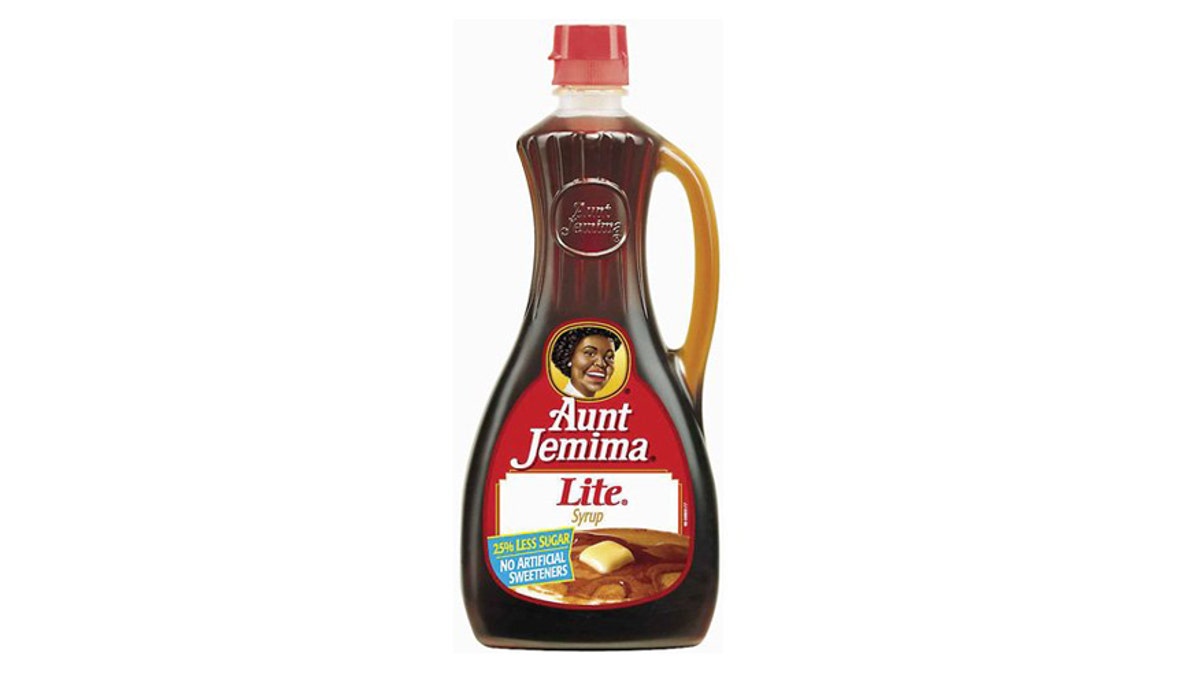
A bottle of syrup with the updated Aunt Jemima likeness. (AuntJemima.com)
In August, we told you about the heirs of a woman whose likeness became ‘Aunt Jemima’ suing Quaker Oats for a share of pancake proceeds.
Now another family is joining the suit, claiming that their relative was the original likeness of the model who became Aunt Jemima.
According to the Courier-Journal, the family of Nancy Green, who was born a slave in Kentucky in 1834, say that she was the first Aunt Jemima model.
Green's heirs are joining a $2 million lawsuit filed by two great-grandsons of Anna Short Harrington, a woman who they say was the model for a more modern version of Aunt Jemima and an actual employee of Quaker Oats who died in 1955.
D.W. Hunter, the great grandson of Harrington, filed a class action lawsuit in August against PepsiCo and its related subsidiaries on behalf of all of Harrington’s great grandchildren. The suit is seeking $2 billion, plus punitive damages, reports the Chicago Tribune.
The federal suit alleges that Harrington and Green were key in formulating the recipe for the nation's first self-rising pancake mix, and that Green came up with the idea of adding powdered milk for extra flavor.
Green allegedly was the Aunt Jemima model for R.T. Davis Milling Co., who developed the pancake mix and later sold it to Quaker Oats in the 1920s.
Harrington, the daughter of sharecroppers, later stepped into the role as Aunt Jemima for Quaker Oats while flipping pancakes in a booth at the New York State Fair in 1935, the suit charges. It says she then enhanced the recipe with "potato grease."
The lawsuit said neither Harrington nor Green possessed the education or acumen to bargain fairly with the pancake companies.
"Defendants were in position to exploit Nancy Green, and Anna Harrington, that came from plantations," the lawsuit said, adding that three of Harrington's daughters were later recruited to represent the brand or were photographed as Aunt Jemima.”
In September, Quaker Oats responded to the lawsuit that Aunt Jemima was never real.
"The image symbolizes a sense of caring, warmth, hospitality and comfort and is neither based on, nor meant to depict any one person," according to a statement from Quaker Oats, a subsidiary of PepsiCo . "While we cannot discuss the details of pending litigation, we do not believe there is any merit to this lawsuit."
